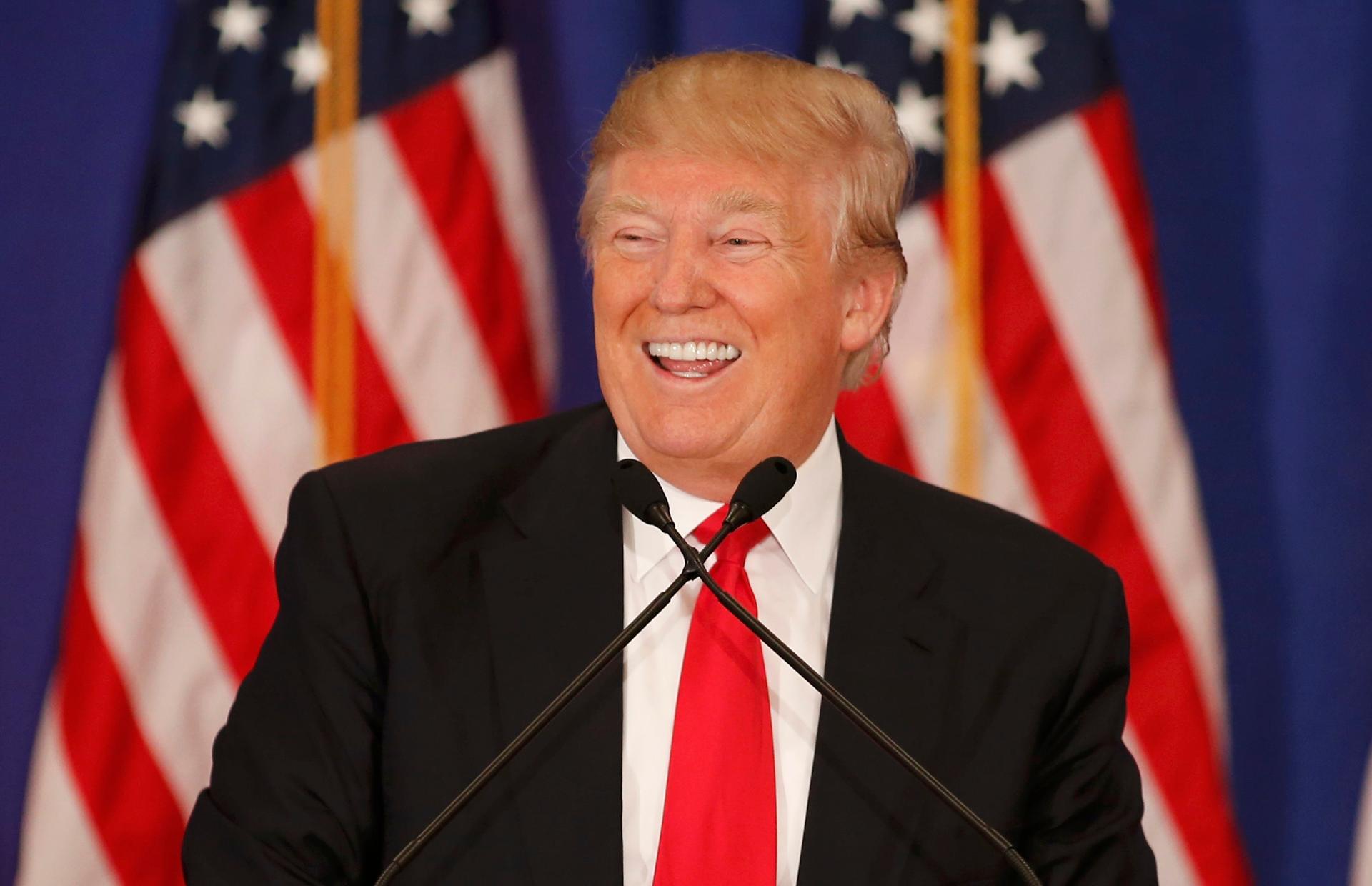Why is Trump winning? He’s selling glamour – not policy
Republican US presidential candidate Donald Trump speaks about the results of the Michigan, Mississippi and other primary elections during a news conference held at his Trump National Golf Club in Jupiter, Florida, March 8, 2016.
Despite all the negativity and mudslinging, Donald Trump's campaign message is ultimately one of vague optimism.
"We are going to start winning again, and we’re going to win so much — you are gonna be so happy," he said after securing victory in the New Hampshire primary in February. "We are going to make America so great again, maybe greater than ever before.”
It almost sounds like a commercial, doesn’t it? If you vote for Trump, you’ll be rewarded with a life of prosperity and happiness. No need to worry about the details.
It's clear that the Trump campaign is all about glamour, not experience, at least according to Virginia Postrel, author of "The Power of Glamour: Longing and the Art of Visual Persuasion."
“Political glamour is relatively rare because usually our politicians are very well known,” says Postrel. “But in 2008, we had a campaign that was based on political glamour, hope and change, and people projecting their greatest desires on to a candidate. Trump is very different from Barack Obama in 2008, but it’s a similar type of phenomenon where people see in the candidate a vision of America that they identify with.”
One such example that Postrel points to is Donald Trump’s proclamation that he will build a wall along America’s southern border, and have Mexico pay for it.
“It isn’t just about literally getting a wall built, it’s about being a doer — being someone that can achieve things, and a vision of America as this nation of doing,” she says.
Throughout his career, Postrel says that Trump has tried carve out an identity built on glamour and lavish wealth.
“He has had this interesting role in American culture as this kind of rich guy who represents an image of the rich guy that’s very different from Mark Zuckerberg or Bill Gates, or these kinds of tycoons,” she says. “It’s a throwback and it’s a kind of blue collar image of what it would be like to be rich.”
Postrel says that Trump’s business background also perpetuates the allure of prestige in the minds of America’s working-class.
“It’s very important to think about the industries in which he built his wealth, which were real estate and travel,” she says. “These are images that traffic in glamour and that show you images that say, ‘Come away on vacation to this hotel and you’ll feel a new life,’ or ‘Live in this penthouse and WOW!’ It represents the life you wish you had.”
So when it comes to the 2016 election, Postrel argues that Trump is basically treating his supporters like hotel guests, inviting them to live in a fantasy world.
“His contributors are largely these sort of Main Street business people,” she says. “I think if I were advising [someone in] how do you strip off the glamour from Trump, it’s to show him not as a doer and a builder and the kind of person that a Main Street business owner would like to be, but rather as the kind of sleazy guy that doesn’t pay his bills — the kind of guy that screws Main Street businesses.”
This story first aired as an interview on PRI's The Takeaway, a public radio program that invites you to be part of the American conversation.
We want to hear your feedback so we can keep improving our website, theworld.org. Please fill out this quick survey and let us know your thoughts (your answers will be anonymous). Thanks for your time!
